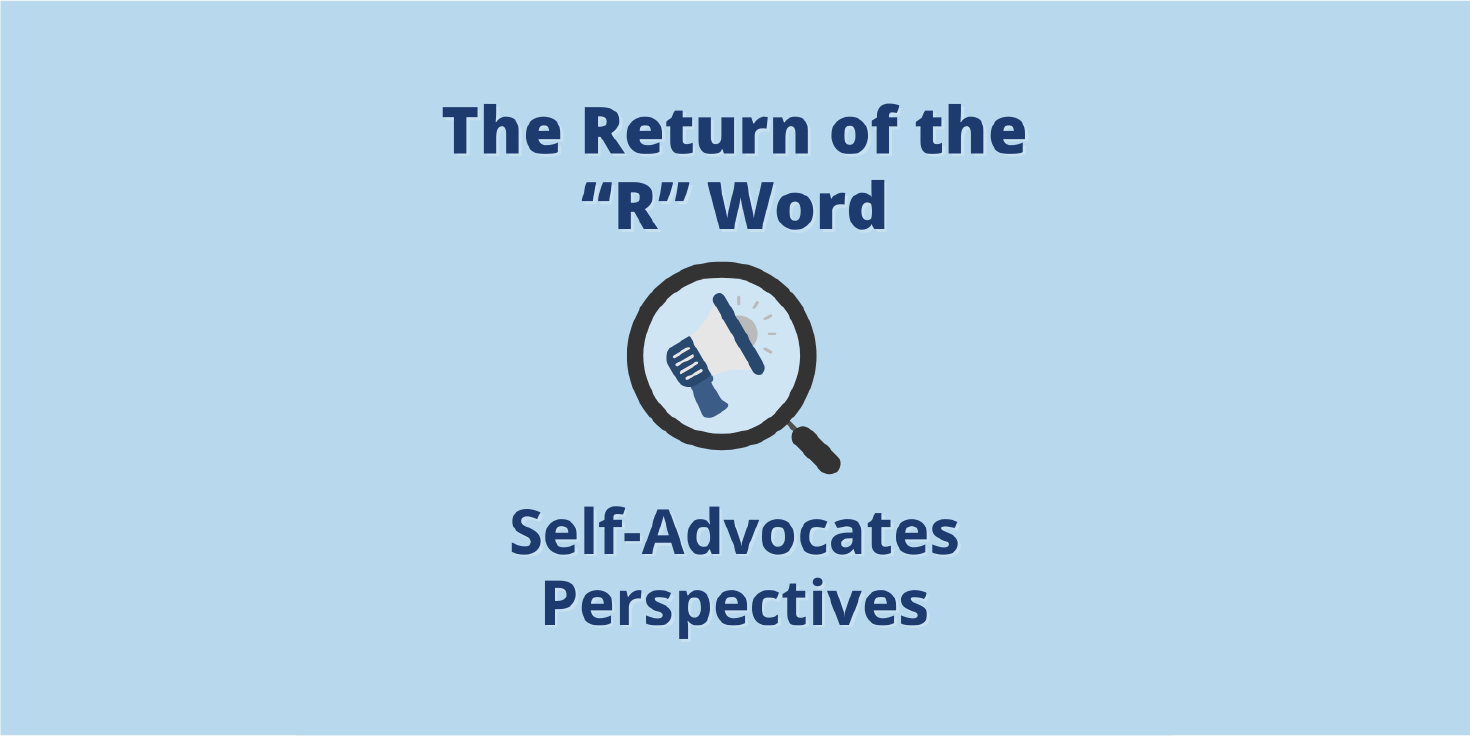According to recent publications and growing concerns among advocacy groups, the use of the ‘r-word’ and other discriminatory language has alarmingly resurfaced in media, entertainment, and everyday conversations. While some may dismiss these words as harmless, the reality is that words hold meaning. Words shape perceptions, influence attitudes, and can either build inclusive communities or contribute to a culture of exclusion. The ‘r-word’ and similar language is not only offensive, but it perpetuates the false and damaging notion that individuals with intellectual and developmental disabilities are not valuable members of their communities.
We interviewed four passionate self-advocates, and members of LIFEPlan and ACANY, on the topic. Nick, Gina, Richie, and Jay each shared their unique perspectives and experiences. Read their thoughts on the ‘r-word’, respect, and what they wish more people understood about disability below!
Nick Santoro
Nick likes playing video games, building Legos, and making videos. He also enjoys his work at Lowe’s and Uncle Giuseppe’s.
Gina Gondek
Gina is very passionate about disability advocacy. She often speaks at SUNY Cortland, answering questions and sharing her experiences with students studying Social Work.
Richie Hicinbothem
Richie likes to go to baseball games, play video games, and spend time with his friends.
Jay Cruickshank
Jay is an actor and musician. He is passionate about civil justice and entertainment workers’ rights.
Recently, the ‘r-word’ and other harmful language has been used in the media. Have you heard the term used either in the media or in your personal life?
“I’ve mostly heard it on the internet.” “On Tiktok, when someone says the ‘r-word’ I say, ‘Hey, you can’t say that. That’s not nice.’, and some people agree with me.” – Nick Santoro
“When I was a kid, I had problems talking and I couldn’t pronounce certain words and people used to call me the ‘r-word’. It hurt my feelings. And I have a lot of friends with down syndrome, and it really hurts my feelings when people call us the ‘r-word’.”- Gina Gondek
“People use [the ‘r-word’] when they are upset about something or don’t agree with someone.” “If you see the word being used on TV, people think ‘oh, it’s not a big deal. I can use the word too’. I don’t see enough things combating that saying, ‘no, that’s not right”. – Jay Cruickshank
Why do you feel the “R” word is harmful?
“It’s discriminatory, it’s demeaning.” “It’s very dehumanizing. You’re [treating] us as less than a human being.” – Nick Santoro
“It can definitely have an impact on someone’s mental health.” – Richie Hicinbothem
“Words can hurt. Especially if somebody has low self-esteem.” “It makes a person feel badly about themselves.” – Jay Cruickshank
How would you respond to people who say, “it’s just a joke” or “I didn’t mean it like that”?
“It’s funny people say that. That’s what people say any time they want to be rude or discriminatory. But you’re literally demeaning a human being. You’re making them think they’re less of a person. You’re making them think that you’re better than them. Which is not the case. No human is better than the other. We have to treat each other with respect.” – Nick Santoro
“I say that’s very harmful to us. Everybody has feelings.” “Yes, we have a disability, but we’re not stupid.” – Gina Gondek
“That’s not a way that we should be joking around. There are plenty of other ways to be funny without having to use that word.” – Richie Hicinbothem
“It’s not a joke to me. People get with their friends and jump on a bandwagon and don’t say anything [to discourage using the ‘r-word’] because they are afraid that their friends will laugh at them.” – Jay Cruickshank
What makes you feel respected?
“I would like people to treat me like a human being and understand that I am not inferior.” – Nick Santoro
“I just want to be treated as an equal.” – Gina Gondek
“I like to be treated fairly.” – Richie Hicinbothem
What do you wish more people understood about living with a disability?
“Understand the challenges. Don’t [promote] stereotypes.” – Nick Santoro
“I want people to understand that yes, we do have a disability. Yes, we take longer learning, be we are smart.” -Gina Gondek
“I wish more people would understand just how we feel. Our day can be made or broken with one simple little thing. For example, if plans get canceled, we may get more disappointed than others.” – Richie Hicinbothem
“[When] you’re different from other people, it’s as though they want you to do what they’re doing and if you don’t follow what they’re doing, they have a problem with it. And I think that’s the problem too. People often don’t accept people for being different from them, but they can learn from them.” – Jay Cruickshank
Is there anything else you want to share?
“You can’t say that sort of rhetoric, because then people are going to believe that.” “We can’t just let hate take it’s place. We need to stop hate.” – Nick Santoro
“I think people feed off of other people and think [using the ‘r-word’] is okay.” “I just wish people would stop using that word” – Richie Hicinbothem
“It’s about people. People matter.” – Jay Cruickshank

